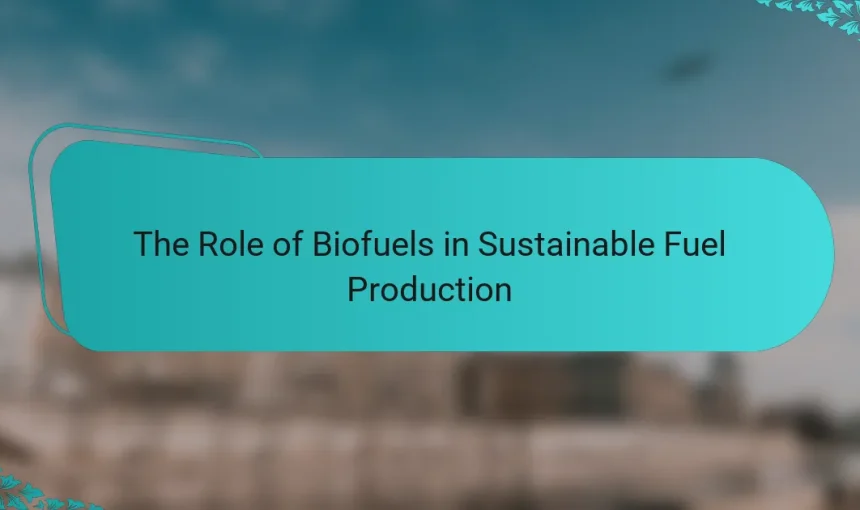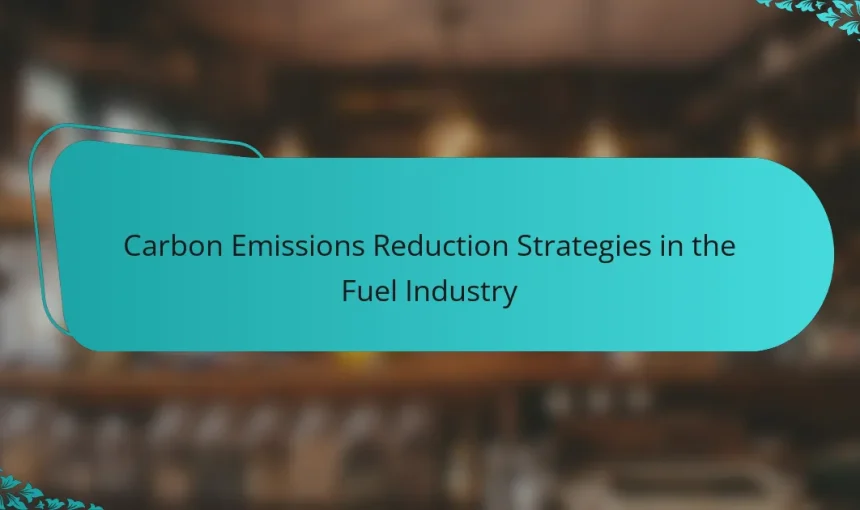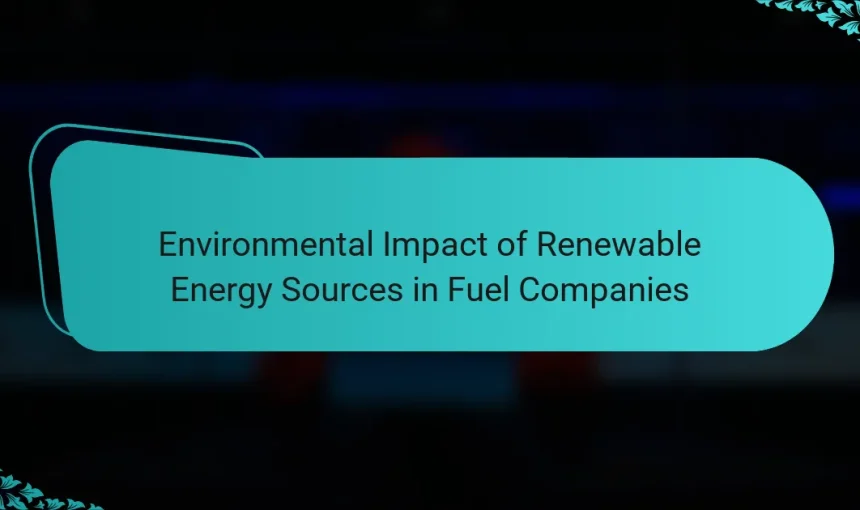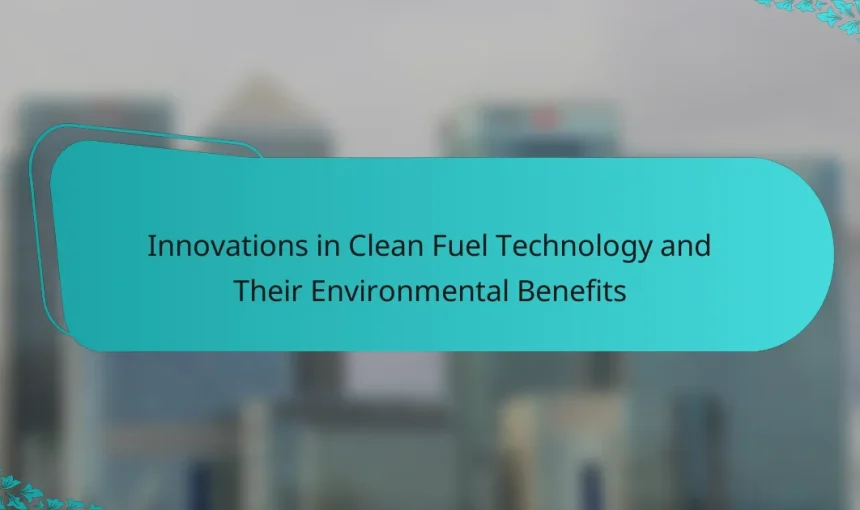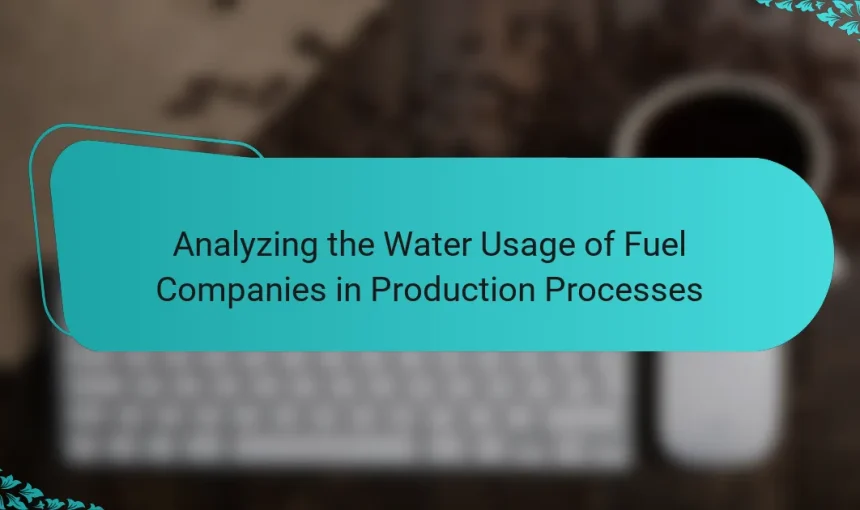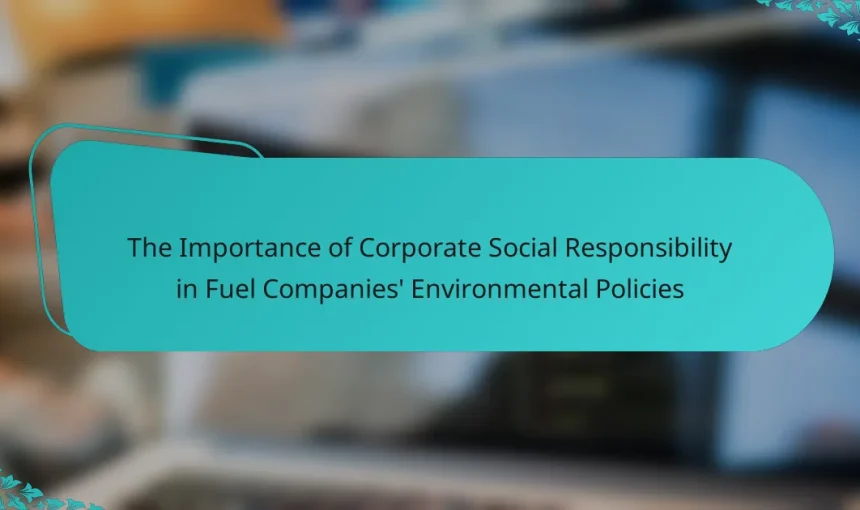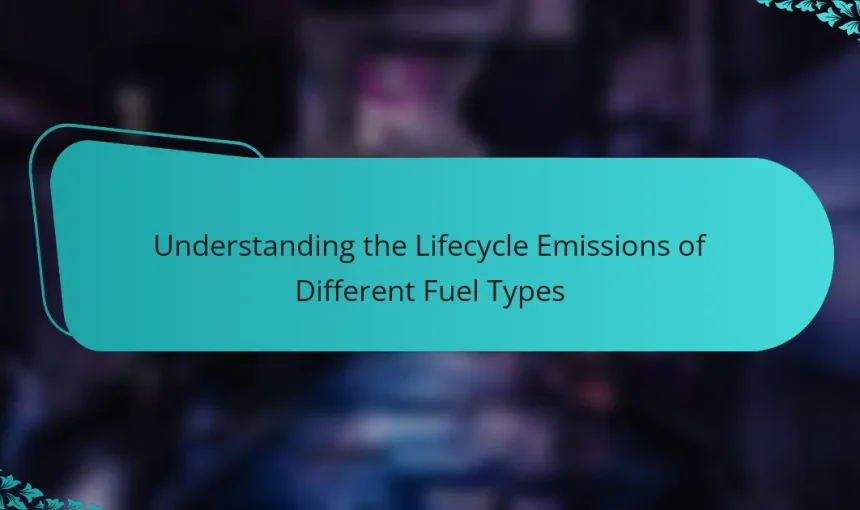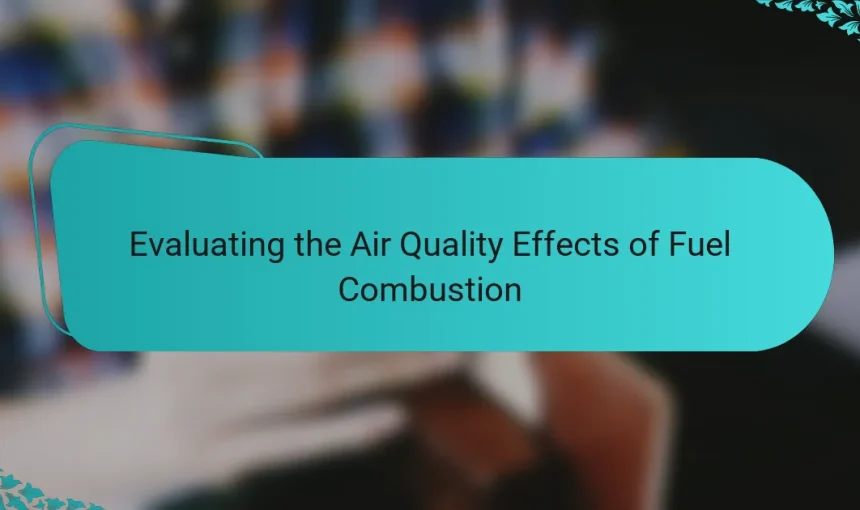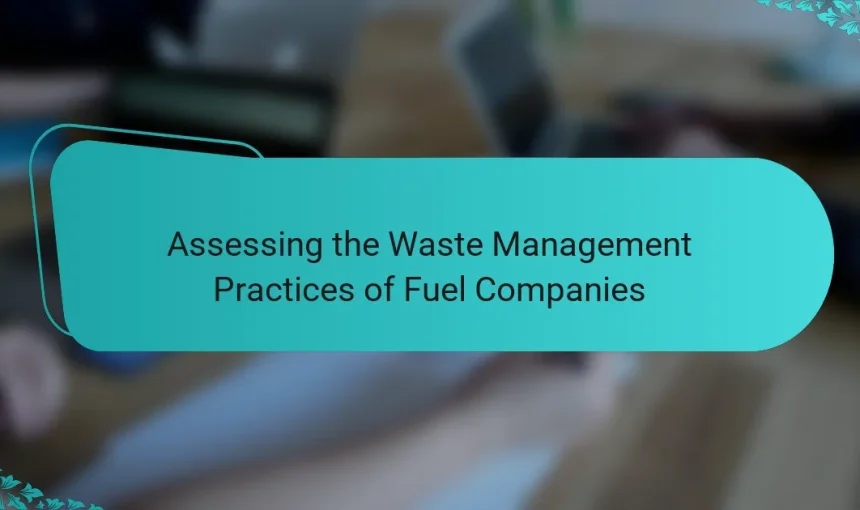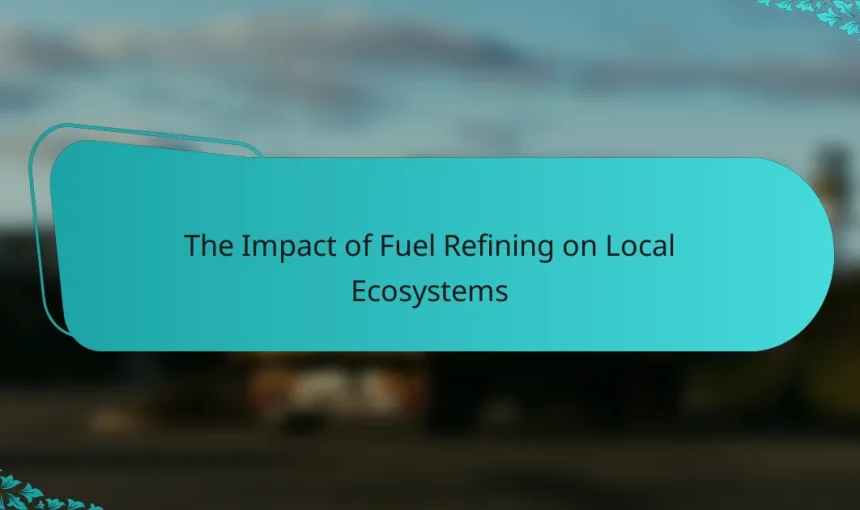What are Biofuels and Their Role in Sustainable Fuel Production? Biofuels are renewable energy sources derived from organic materials. They include ethanol from corn and biodiesel from vegetable oils. Biofuels play a significant role in sustainable fuel production by reducing greenhouse gas emissions. According to the U.S. Department of Energy, biofuels can lower carbon dioxide […]
What are Carbon Emissions Reduction Strategies in the Fuel Industry? Carbon emissions reduction strategies in the fuel industry include various methods aimed at decreasing greenhouse gas emissions. These strategies encompass improving fuel efficiency, adopting cleaner fuels, and implementing carbon capture and storage technology. Fuel efficiency improvements can reduce emissions by optimizing combustion processes and enhancing […]
What is the Environmental Impact of Renewable Energy Sources in Fuel Companies? Renewable energy sources significantly reduce the environmental impact of fuel companies. They lower greenhouse gas emissions compared to fossil fuels. For instance, wind and solar energy produce minimal emissions during operation. This transition helps mitigate climate change effects. Additionally, renewable energy reduces air […]
What are Innovations in Clean Fuel Technology? Innovations in clean fuel technology involve advancements that enhance energy efficiency and reduce emissions. These innovations include the development of biofuels, hydrogen fuel cells, and advanced battery technologies. Biofuels, derived from organic materials, offer a renewable alternative to fossil fuels. Hydrogen fuel cells convert hydrogen into electricity, emitting […]
What is the significance of analyzing water usage in fuel companies’ production processes? Analyzing water usage in fuel companies’ production processes is significant for sustainability and efficiency. Water is a critical resource in fuel production. Companies often use large volumes of water for cooling, processing, and cleaning. High water consumption can lead to environmental impacts […]
What is Corporate Social Responsibility in Fuel Companies? Corporate Social Responsibility (CSR) in fuel companies refers to their commitment to ethical practices and sustainable development. It involves integrating social, environmental, and economic concerns into their operations and interactions with stakeholders. Fuel companies engage in CSR to minimize their environmental impact, support local communities, and ensure […]
What are Lifecycle Emissions and Why are They Important? Lifecycle emissions refer to the total greenhouse gas emissions produced throughout the entire lifecycle of a product or fuel. This includes emissions from extraction, production, transportation, use, and disposal. Understanding lifecycle emissions is crucial for assessing the environmental impact of different fuel types. It helps in […]
What are the Air Quality Effects of Fuel Combustion? Fuel combustion negatively impacts air quality by releasing pollutants. These pollutants include carbon monoxide, nitrogen oxides, and particulate matter. Carbon monoxide reduces oxygen delivery in the bloodstream. Nitrogen oxides contribute to the formation of ground-level ozone. Particulate matter can penetrate deep into the lungs and cause […]
What are the current waste management practices employed by fuel companies? Fuel companies employ several waste management practices to minimize environmental impact. These practices include waste minimization, recycling, and treatment of hazardous waste. Waste minimization focuses on reducing the volume and toxicity of waste generated. Fuel companies implement efficient processes to limit waste production. Recycling […]
What is the impact of fuel refining on local ecosystems? Fuel refining negatively impacts local ecosystems. It releases pollutants such as sulfur dioxide, nitrogen oxides, and volatile organic compounds. These substances can lead to air and water quality degradation. Aquatic ecosystems suffer from oil spills and wastewater discharge. Soil contamination occurs due to leaks and […]
